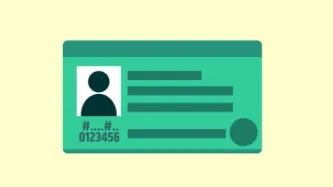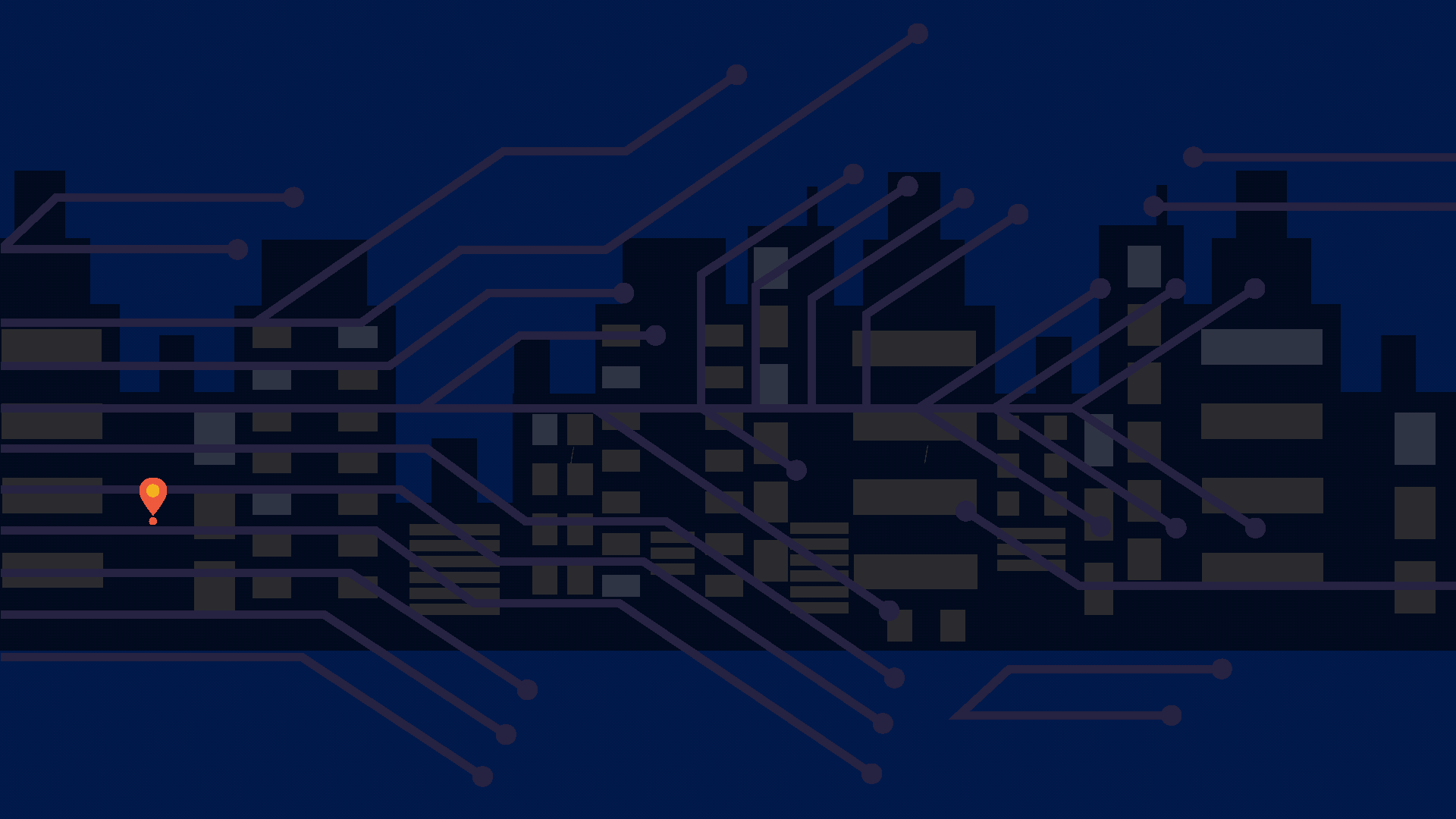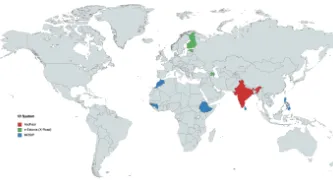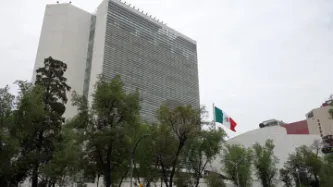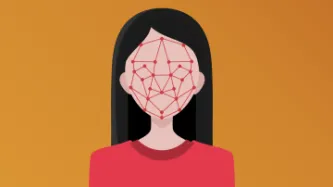Search
Content type: Long Read
In a roundtable available on YouTube, co-hosted with Garden Court Chambers, Privacy International brought together immigration law practitioners to discuss how they’ve used privacy and data protection law to seek information or redress for their clients.Index:1. UK Border 20252. Super-complaint and judicial review challenge to data sharing3. Mobile phone seizure and extraction4. Freedom of Information Act requestsThe dystopian future: UK Border 2025To set the scene on how the future may look…
Content type: News & Analysis
In a ruling handed down on 14 October 2021 by the High Court of Kenya in relation to an application filed by Katiba Institute calling for a halt to the rollout of the Huduma card in the absence of a data impact assessment, the Kenyan High Court found that the Data Protection Act applied retrospectively.
Background to the case
Huduma Namba as initially proposed
In January 2019, the Kenyan Statute Law (Miscellaneous Amendment) Act No. 18 of 2018 came into effect, introducing a raft of amendments…
Content type: Advocacy
The role that personal data plays in political campaigns https://privacyinternational.org/learn/data-and-elections and the risks of data abuse and exploitation only entered into the public discourse a few years ago, when Cambridge Analytica became a household name thanks to several scandals over the course of 2017 and 2018.
Since then, we have seen a flurry of initiatives that have helped shed light on the otherwise very opaque practices of digital campaigning. There have been public…
Content type: Guide step
The information you share on WhatsApp can be very revealing. Once installed on a device, the app potentially has access to information such as your location, contact information, and media stored on the same device.
Your WhatsApp app generates a lot of data that can also be stored on your device and elsewhere. It’s important for you to be able to understand the types of data that apps like WhatsApp generate. Government agencies may seek access to this data through at least two routes: they…
Content type: News & Analysis
2022 will see a raft of high tech surveillance tools emerging in the UK government’s arsenal, which will further entrench a ‘hostile environment’ for migrants. Compounding this further, immigration officers will increasingly be using digital forensic tools such as 'mobile phone extraction' under a veil of secrecy. This raises serious concerns about overreach, misuse and abuse of power, the actual quality and integrity of the data they gather, and independent oversight of these powers. But it…
Content type: Case Study
Overview
Estonia is widely considered one of the most digitally advanced countries in the world. Its e-ID is the gateway through which e-citizens are able to access most public services. Estonia's e-ID is both designed and operated by a collection of private companies, and overseen by the Police and Border Guard agency.
X-Road® (implemented in Estonia as X-tee) is the free and open-source data exchange layer which provides a standardised method for transferring information between the data…
Content type: Long Read
This piece is a part of a collection of research that demonstrates how data-intensive systems that are built to deliver reproductive and maternal healthcare are not adequately prioritising equality and privacy.
What are they?
Short Message Services (SMS) are being used in mobile health (MHealth) initiatives which aim to deliver crucial information to expecting and new mothers. These initiatives are being implemented in developing countries experiencing a large percentage of maternal and…
Content type: Video
Update: Pa has since won a settlement from UberPlease note the views expressed in the video are interviewee's own and do not necessarily reflect the views of PI.Pa used to work for Uber. After some time, Uber started asking him to submit a picture of himself to the platform to confirm it was indeed him who had completed the job. However, with time, the frequency of the requests increased. In the beginning, the requests for a picture only happened once a week, but as time went by Pa told us that…
Content type: Long Read
What if your boss was an algorithm? What would you do if your employer suddenly fired you or reduced your pay without telling you why? And without being willing to give you a reason when you ask for one?
This is not science fiction or some far-fetched reality. Millions of people worldwide are working in the gig economy sector for companies like Uber, Deliveroo, Bolt, Just Eat… And this could be the future of work for people working outside the gig economy, as surveillance technologies are…
Content type: Video
Please note the views expressed in the video are the interviewee's own and do not necessarily reflect the views of PI.
Driver X (he wishes to remain anonymous) has been working for Uber for five years. After working for Uber for two and half years, he suddenly received a message telling him that his account had been temporarily suspended and asking him not to call Uber while the investigation was pending. He was baffled, as he had an excellent record and rating, with plenty of positive…
Content type: Video
Please note the views expressed in the video are the interviewee's own and do not necessarily reflect the views of PI.
In his interview, Alexandru told us that he started to work for Uber in 2018. Despite being aware of negative experiences of others, he felt that everything was running smoothly, and for a while, Uber met his expectations.
However, in 2021, he received a notice from Uber that they had noticed fraudulent activity associated with his account. He went on social media and…
Content type: News & Analysis
What if we told you that every photo of you, your family, and your friends posted on your social media or even your blog could be copied and saved indefinitely in a database with billions of images of other people, by a company you've never heard of? And what if we told you that this mass surveillance database was pitched to law enforcement and private companies across the world?
This is more or less the business model and aspiration of Clearview AI, a company that only received worldwide…
Content type: Long Read
At Privacy International, we challenge companies and governments who infringe on our privacy and facilitate, as well, violations of other human rights.
Our most recent challenge is against Clearview AI, a company that trawls the internet to save photos of our faces to form part of their biometric database to sell. We have filed complaints alongside 3 other organisations with regulators in the UK, France, Italy, Austria and Greece. Our goal is a clear message that there is no place in society…
Content type: Case Study
This written piece is part of PI's wider research into the tech behind ID systems around the world. Click here to learn more.
Overview
Aadhaar (Hindi for ‘foundation’) is India’s ID programme, the largest in the world, surpassing 1 billion sign ups in just under 6 years. This programme aims to give every citizen a unique, biometrically-verifiable identification number. Each user receives a card with their number on it, which can be cross-referenced with the biometric data held in a government…
Content type: Long Read
Zimbabwe has a history of state led surveillance that is carried out more for political gain than for the investigation of legitimate criminal activities. During former President Mugabe’s 37 year rule the government used laws and state security structures to carry out targeted surveillance of persons of political interest and more generalised mass surveillance of the population.
Specific laws such as the Interception of Communications Act as well as mandatory SIM-card registration regulations…
Content type: Long Read
The smart city market is booming. And with a booming market comes companies that are profiting and reshaping our public space, like the Chinese tech company Huawei.
While the term ‘Smart City’ is a broad one that encompasses many different initiatives, some with little to no impact on our privacy and other rights. Certain issues are nevertheless recurrent: the lack of transparency around public-private partnerships, the absence of consultation, and the appetite for a “tech quick fix…
Content type: Examples
As a result of the challenges emerging from Covid-19 to disburse financial assistance, the government of Paraguay decided to change its food security programme, Ñangareko, from an in-kind benefit to a bank transfer consisting of a one-off payment of PYG 500,000 (= +/-73USD).
The Ñangareko Programme is aimed at those affected by Covid-19 which are stated to include the most vulnerable, informal workers, persons without a RUC (the unique taxpayer registry number) or social security, and who don’…
Content type: Long Read
For over 20 years with the start of the first use of ICTs in the 1990s, we have seen a digital revolution in the health sector. The Covid-19 pandemic significantly accelerated the digitalisation of the health sector, and it illustrates how fast this uptake can be and what opportunities can emerge; but also, importantly, the risks that it involves.
As we've said many times before, whilst technologies can be part of the solution to tackle some socio-economic and political challenges facing our…
Content type: Examples
Following the largest protests seen on the island in decades, Cuba’s government introduced new social media regulations that make inciting acts that alter public order a crime, and ordered ISPs to shut off access for those who “spread fake news or hurt the image of the state”. Critics believe the new rules are intended to curb dissent, as the protests spread across the island from a small town, where the first protest was convened in an online forum and spread via a Facebook livestream. Deputy…
Content type: Advocacy
Our environment is increasingly populated by devices connected to the Internet, from computers and mobile phones to sound systems and TVs to fridges, kettles, toys, or domestic alarms. There has been research into the negative safety and privacy impacts of inadequate security provided by the software in such devices (such as the creation of large scale botnets). This is also the case with outdated security, a risk enabled by software support periods that are shorter than a product’s usable life…
Content type: Long Read
Image source
This piece is a part of a collection of research that demonstrates how data-intensive systems that are built to deliver reproductive and maternal healthcare are not adequately prioritising equality and privacy.
Telemedicine describes the vast range of applications and technologies used to provide and manage healthcare remotely.
Telemedicine as its most basic refers to the transmission of data from a patient to a healthcare professional through a range of electronic…
Content type: Long Read
Governments around the world are increasingly making registration in national digital ID systems mandatory for populations, justifying its need on a range of issues from facilitating access to services, to national security and fighting against corruption. This is an attempt to create a "foundational identity" for an individual, or "a single source of truth" about who someone is, according to a government agency. These identity systems are run by governments, sometimes by private companies, or…
Content type: Long Read
In early August, the African Union (AU) issued a statement condemning Denmark’s Aliens Act which, among other things, allows Demark to relocate asylum seekers to countries outside the European Union while their cases are being processed.
The AU argues that this amounts to an abdication by Denmark of “…its international responsibility to provide asylum and protection to those that enter its territory…’’ More importantly, the AU says this is an “extension of the borders of such countries and an…
Content type: News & Analysis
Introduction
The European Parliament has adopted a nonbinding resolution against the use of artificial intelligence (AI) by law enforcement in public spaces and a ban on facial recognition databases, such as the ones used by Clearview AI.
It is a significant and hugely welcome step in an ongoing campaign to ensure the EU leads the world in protecting against dangerous applications of AI within its borders.
The Resolution recognises the need to safeguard against application of AI and mass…
Content type: Advocacy
Some of the most vulnerable groups in Mexico are amongst the groups at risk from a draft General Population Law that creates a biometric “Unique Digital Identity Card” (CUID), argue civil society organisations. The proposed law has now reached the senate, and has raised serious concerns from civil society organisations. Led by our global partner in Mexico Red en Defensa de los Derechos Digitales (R3D), PI along with 25 organisations have signed a joint letter to the members of the senate,…
Content type: Long Read
Image found here.
Founded in 1959, Bounty UK Limited markets itself as an information service for pregnant women and new mothers. Prior to the pandemic, it was best known for distributing “Bounty packs” of free samples of baby products to pregnant women at midwife appointments, to new mothers on maternity wards in the UK and through its digital presence via its website and app. Bounty representatives also sold new born photography packages to new mothers at the hospital bedside. Bounty entered…
Content type: Long Read
Introduction
Technology has driven a number of changes in the way that financial services are packaged and accessed by consumers. These changes have led to the rise of fintech, a data intensive industry that has been touted for its convenience and as an alternative to traditional financial services.
The current article looks at the use of digital loan Apps in Philippines and Kenya and contextualises the global discussions on fintech which we have been monitoring for some years. Research…
Content type: Advocacy
PI, together with 30 national and international civil society organisations (CSOs), release an open letter calling on Parliament and relevant stakeholders to halt and ban the use of live facial recognition technology (LFRT) by the police and private companies.We believe that the use of LFRT poses significant and unmitigable risks to our society. We do not believe that it can ever be safely deployed in public spaces or for mass surveillance purposes.The open letter comes as a result of a recent…






